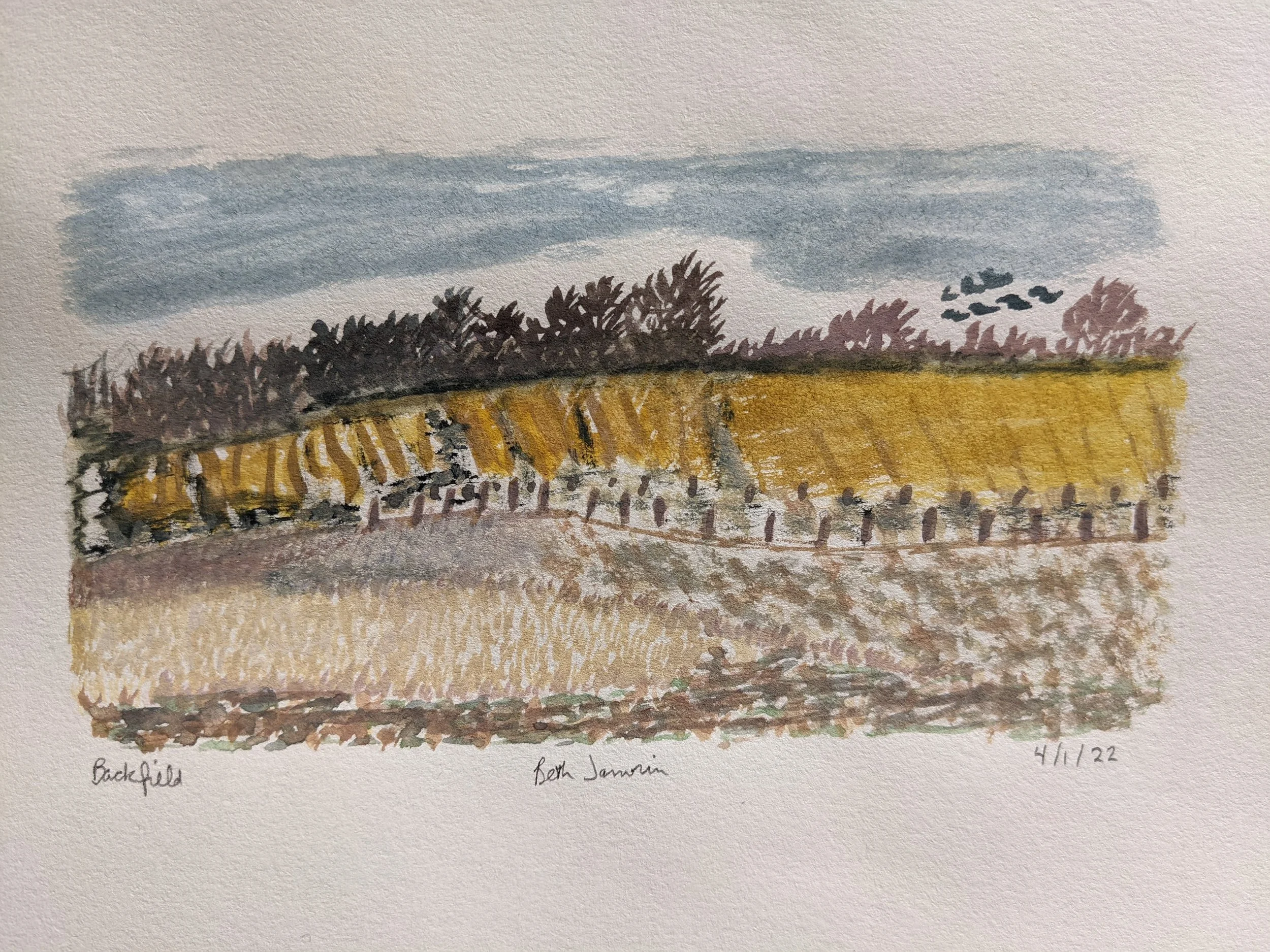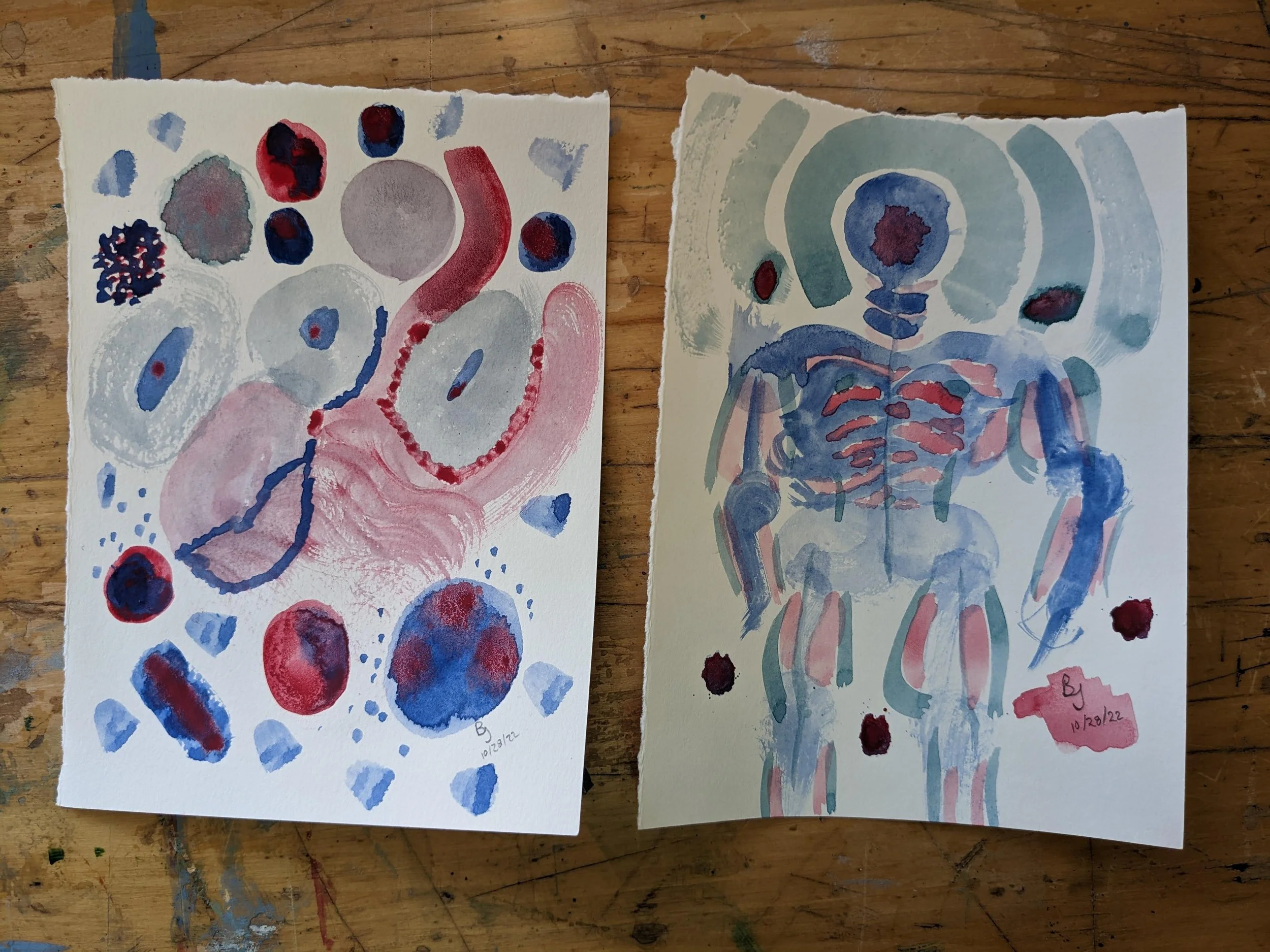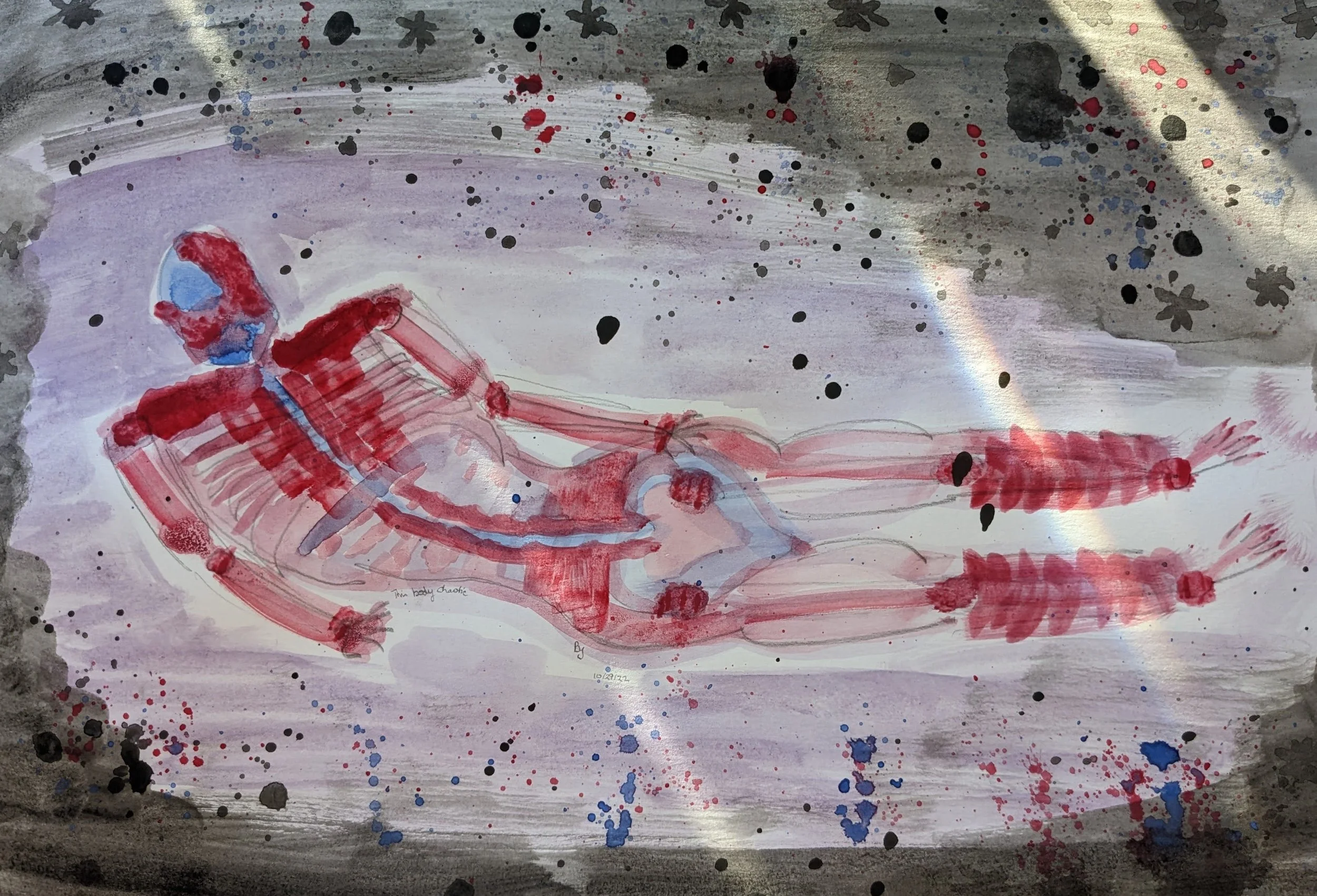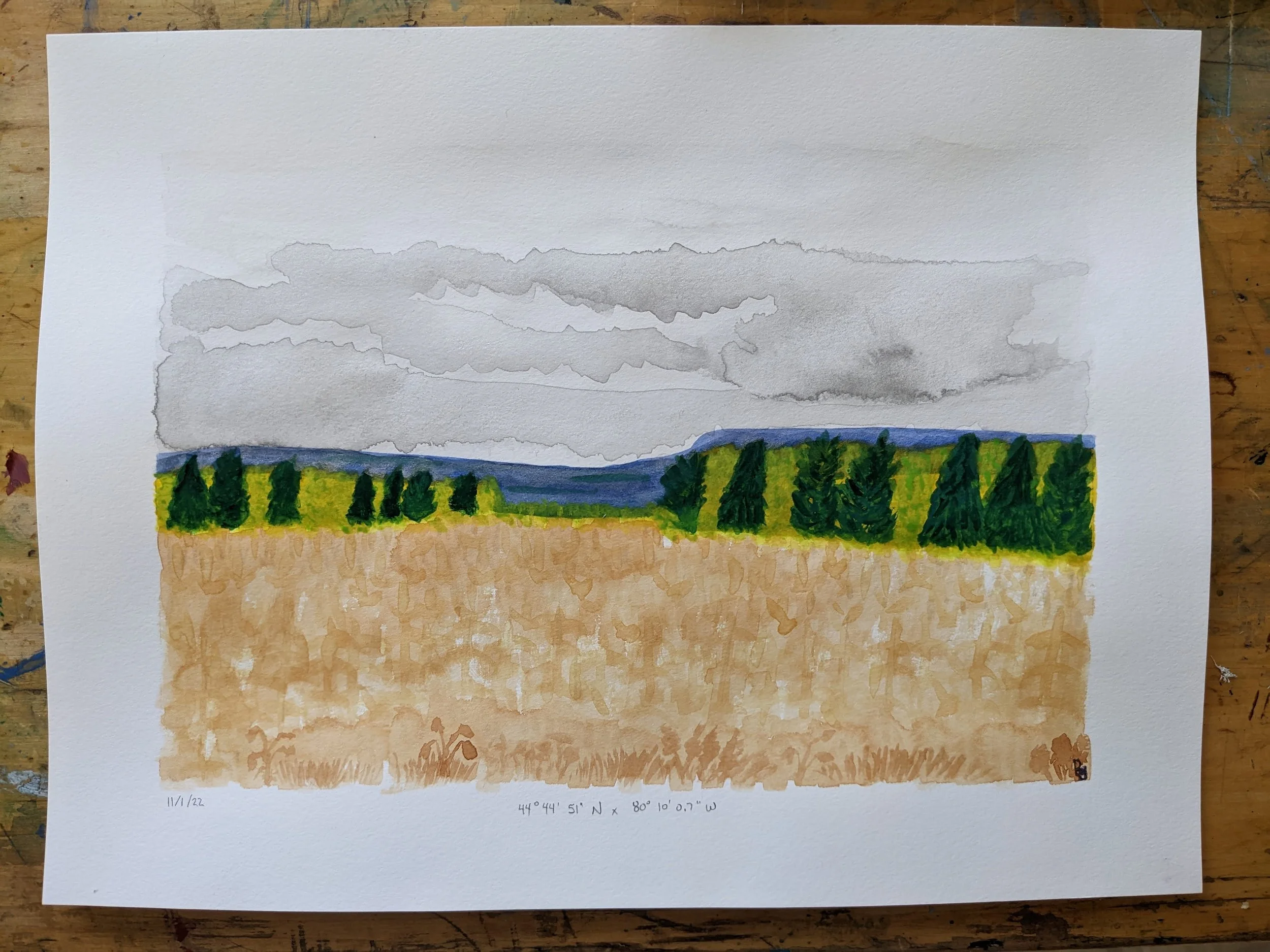Failure and Success
Traveling along the Artist’s Way for the first week has been an interesting endeavor.
The creative capacity broken down into Logic-brain and Artist-brain learning tricks remind me a lot of CBT/DBT tools picked up over the years once removed from the touchy wounds that remain.
This third-person exploration allows for a circumspect look at the pain without pushing past ‘the stretch’ to ‘activate the muscle’. In so doing you can confront some things that previously, at least for me, have been unconfrontable.
How does one suss out the child-reasoning left over from coping mechanisms built by a brain unformed and unable to fully perceive or reason? You don’t go at it face forward.
Here is where I found the Morning Pages to really shine.
In, apparently, writing pure stream of thought consciousness without an end goal you may find certain things crystalizing that you could never quite say before. A thought that lived in the back of your brain, that you could taste on the tip of your tongue but never say when you needed to, gets written down. For me, with far more words than were absolutely necessary, but written down at least.
Now I can return and refine the thought to its essence, the truth hidden in the verbosity.
Core negative beliefs feel safe but they will still drown us.
The first week focuses on why we don’t believe that we are creative.
“I am not creative because my teacher, parent, older sibling, other relative/adult in our life (sub in anyone taller than us) said so.”
This is true because adults are bigger, older and know more than us.
It must be true.
For me, no one ever told me I wasn't creative/an artist etc.
So why did I never try before this?
Part core negative beliefs, and part lack of nurturing.
Shadow artists are not born, they are made.
“Ideally, we would be nurtured and encouraged first by our nuclear family and then by ever-widening circles of friends, teachers, well-wishers. As young artists, we need and want to be acknowledged for our attempts and efforts as well as for our achievements and triumphs. Unfortunately, many artists never receive this critical early encouragement. As a result, they may not know they are artists at all.”
Week 1, Recovering a Sense of Safety, pg. 25
The Artist’s Way 30th Anniversary Edition, Julia Cameron
When failure is not an option; when “try it and see what happens” is replaced by “what a mess, what a waste …” and when “Stop daydreaming. Think sensibly about your future.” is the correct way to exist then why would you waste time on a fruitless, time sucking, money and product wasting, never going to amount to anything hobby?
Have you ever thought…
Failure is not an option.
Waste not, want not.
There is only one right way.
If you can’t do it right, don't do it at all.
Hustle mentality.
Self-care is selfish.
Just push through.
Live minimally (even if you are a maximalist).
Half-finished projects are a sign of failure.
I can’t just throw it out, this cost something.
What you make/do must be beautiful and useful and ultimately make other people happy.
Don’t take up space.
If I can’t do it now, I never will be able to.
Don’t waste time.
Talent, not audacity.
So this morning I focused on all of the ways to flub it.
Blow (it): Archaic. to blossom or cause to blossom.
a yield or display of blossoms: the lilac's lavender blows.
a display of anything bright or brilliant: a rich, full blow of color.
state of blossoming; a flowering: a border of tulips in full blow.
before 1000; Middle English verb blowen, Old English blōwan;
German blühen “to bloom,”
Latin flōs flower
Spoil, botch, or bungle something: That was a great opportunity, but now I've blown it. [Slang; c. 1940]
Bollix: a confused bungle; to do (something) badly; bungle (often followed by up): His interference bollixed up the whole deal.
1930–35; variant of ballocks (interesting side quest to see the origins of ballocks if you’re so inclined)
Botch: a clumsy or poor piece of work; bungle: He made a complete botch of his first attempt at baking.
1350–1400; Middle English bocchen “to patch up”; perhaps to be identified with bocchen “to swell up, bulge”, though sense development unclear
Bumble: to bungle or blunder awkwardly; muddle: He somehow bumbled through two years of college.
1525–35; perhaps blend of bungle and stumble
Bungle: to do clumsily and awkwardly; botch: He bungled the job.
First recorded in 1520–30; of uncertain origin
Err: to go astray in thought or belief; be mistaken; be incorrect.
1275–1325; Middle English erren, Old French errer
Latin errāre; Gothic airzjan, Old High German irrôn, German irren
Flub: to perform poorly; blunder; bungle: He flubbed the last shot and lost the match.
An Americanism dating back to 1920–25; origin uncertain
Fumble: to feel or grope about clumsily; inefficiently: She fumbled in her purse for the keys.
1500–10; Norwegian, Swedish fumla,
Middle Low German fummeln ‘to grope, fumble’
Mar: to damage or spoil to a certain extent; render less perfect, attractive, useful, etc.; impair or spoil: That billboard mars the view. The holiday was marred by bad weather.
to disfigure, deface, or scar: The scratch marred the table.
before 900; Middle English merren, Old English merran “to hinder, waste”;
Old Saxon merrian, Old High German merren “to hinder,”
Old Norse merja “to bruise,”
Gothic marzjan “to offend”
Muddle: to mix up in a confused or bungling manner; jumble.
to behave, proceed, or think in a confused or aimless fashion or with an air of improvisation: Some people just muddle along, waiting for their big break.
1540–50; Middle Dutch moddelen “to muddy”
Muff: a bungled or clumsy action or performance.
1590–1600; Dutch mof, earlier moffel, muffel mitten, muff
Old North French moufle
early Medieval Latin muffula, perhaps Frankish
Vitiate: to impair the quality of; make faulty; spoil.
to impair or weaken the effectiveness of.
1525-35 from Latin vitiatus, vitiare ‘to spoil, impair’; vitium ‘blemish, defect, fault’
To Fail
to fall short of success or achievement in something expected, attempted, desired, or approved: The experiment failed because of poor planning.
to be unsuccessful in the performance or completion of: He failed to do his duty.
(of some expected or usual resource) to prove of no use or help to: His friends failed him. Words failed her.
(Slang) an embarrassing or humorous mistake, humiliating situation, etc., that is subject to ridicule and given an exaggerated importance: Their app update is a massive fail.
the condition or quality resulting from having failed in this way: His online post is full of fail.
1175–1225; Middle English failen, from Anglo-French, Old French faillir,
from unattested Vulgar Latin fallīre,
for Latin fallere “to disappoint, deceive”
Is it possible to achieve success with zero failure?
An anecdote:
He was seated at this bench testing, figuring, and planning. I then learned that he had thus made over nine thousand experiments in trying to devise this new type of storage battery, but had not produced a single thing that promised to solve the question. In view of this immense amount of thought and labor, my sympathy got the better of my judgment, and I said: ‘Isn’t it a shame that with the tremendous amount of work you have done you haven’t been able to get any results?’ Edison turned on me like a flash, and with a smile replied: ‘Results! Why, man, I have gotten a lot of results! I know several thousand things that won’t work.’
“Edison: His Life and Inventions”, (1910)
We sometimes learn a lot from our failures if we have put into the effort the best thought and work we are capable of.
Thomas Edison(1921), interviewed by B. C. Forbes
for American Magazine
The student will find that experience is the best teacher. The reason why I get along with comparative ease now is because I know from experience the enormous number of things that won’t work. For instance, I start on a new invention to-morrow. From the great number of experiments I have made, and the vast amount of information I have stored up, I am saved a great deal of time and trouble in not having to travel over barren ground.
“How to Succeed As An Inventor”, Edison (1882)
From my Morning Pages:
“One must explore, experience, imagine, search; try, find and then lose, lose and then find; bumble, prevaricate, blunder, stumble, wobble’ teeter and totter; muddle, flounder; falter and recover, bungle, botch, err, flub, fudge, miscalculate, mishandle, mismanage, muff, butcher, mar, ruin, spoil, goof, blow it, bollix …
A child must take up to 2,000 individual steps before the brain even recognizes that this thing called walking is what they are trying to do. Then the brian starts to pay attention - stand up, wobble, fall, recalculate, repeat.
Failure is the only option if you ever want to succeed. Humans learn through trial and error, the scientific method. Our brains may be more attuned to certain tasks because of nature/nurture, requiring less failures, but that’s not a pat on our back because we achieve what comes easily. To achieve what we already guessed we were capable of.
No, to achieve what we never thought possible, to achieve what we had to fight our brains tooth and nail for - that is success. We made the impossible happen. We learned, contrary to our nature, how to do an impossible thing.”
What are your thoughts?








